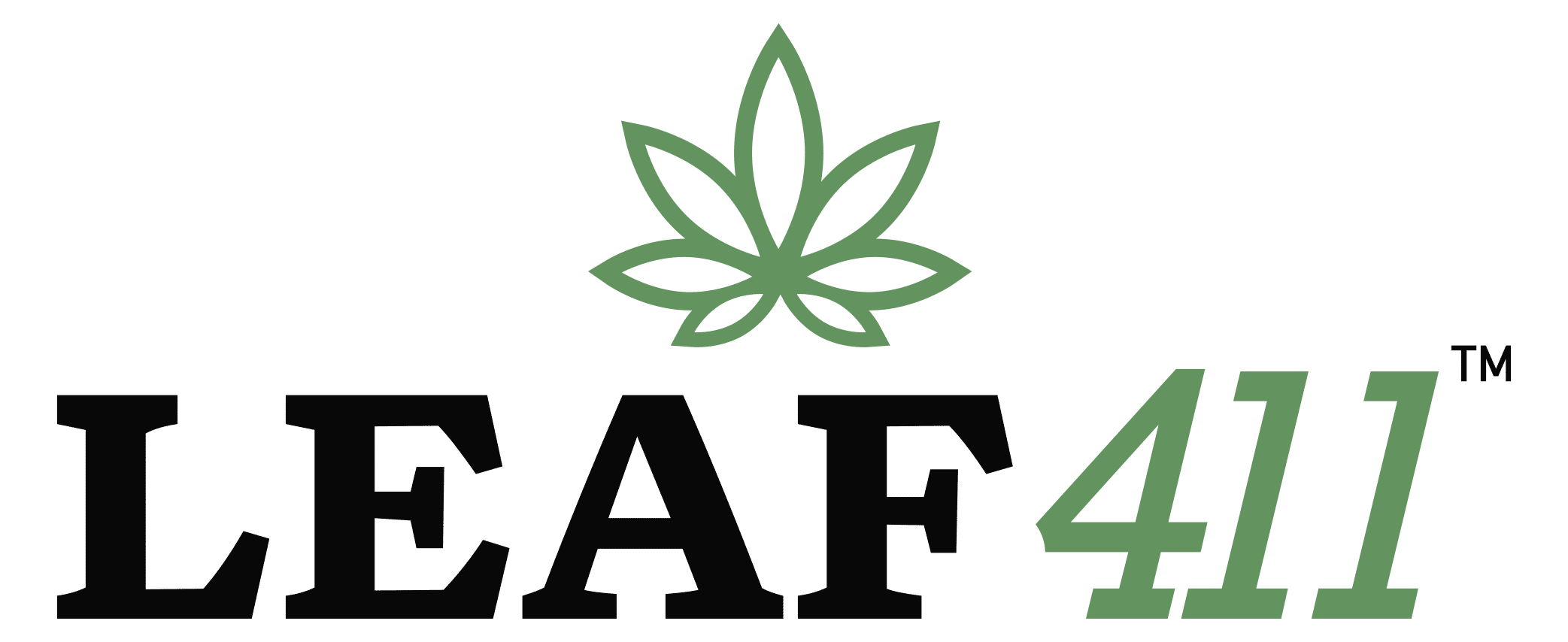Medically reviewed by Katherine Golden, RN
Written by Denise Rustning
Back in January, we wrote about the pros and cons of medical marijuana cards. The overall takeaway was that if you live in a state like Colorado that has legal adult-use (rec) cannabis, you very likely don’t need to invest the time and money into a med card (also called a red card, since the cards originally were printed on a red certificate), at least not at first.
However, there were a few notable exceptions, including situations where the patient is under the age of 21. In those cases, med cards are a legal necessity!
Medical Marijuana Cards for Children Under 18
As of July 2020, the State of Colorado’s Medical Marijuana Registry includes a total of 286 patients under the age of 18, with 138 of those patients between 0-10 years old. While pediatric patients make up only a fraction of the registry, their need for relief is treated just as seriously by the state, with standard processes and safeguards in place to ensure safe access to legal cannabis.
Indeed, patients’ access to safe, legal cannabis is at the front of our minds these days as we fully launch our Leaf411 Affordability Program. One of the program’s priorities is to provide scholarships to patients seeking med cards, with a special emphasis on supporting minor patients who must undergo two independent medical evaluations as part of their med card application process. This doubles the burden on families both in terms of time and finances.
Costs aside, it can also be daunting to navigate the bureaucratic processes required to obtain a med card for your child. That’s why we decided to use today’s blog to walk you through Colorado’s medical marijuana card application process for minors.

Know What Medical Conditions Are Covered
Qualifying debilitating and disabling medical conditions for medical marijuana cards vary from state to state. In Colorado, the qualifying conditions include seizures, persistent muscle spasms, cancer, PTSD and Autism Spectrum Disorder. You can find a full list here.
Beyond knowing what conditions are covered, it’s important to educate yourself on cannabis and cannabis therapeutics before pursuing a med card for your child, according to Leaf411 Advisory Board member Dr. David Gordon, who sees adults and pediatric patients for medical marijuana evaluations at his practice, 4 Pillars Health & Wellness. That education can help you come into the process with realistic expectations and be more prepared for the evaluation process.
For example, Dr. Dave shared that many people come into the process thinking that CBD is the only compound in cannabis that has value as medicine, while THC is a ‘drug’ to be avoided. That’s not the case at all!
“In reality, both CBD and THC are highly effective medications, and typically a good cannabis regimen will include both compounds. Adding THC to someone’s regimen, including children, does not mean the patient is getting high,” says Dr. Dave.
Our Leaf nurses are a great resource at this step. Our nurses can help you understand the compounds of the plant, provide balanced education so you can make an informed decision on when it’s necessary to visit with a cannabis MD, and they’re available at no cost to you! Call 844-LEAF411 (844-532-3411) or chat us from the Leaf411.org homepage during our hotline hours. We also have a section in our Leaf Library dedicated to research and news specific to cannabis and minors.

Understanding Your Role as a Caregiver
When applying for a medical marijuana card for your minor child, you’re considered the caregiver. As a caregiver, you’ll be responsible for submitting your child’s application and renewal, as well as growing or purchasing cannabis on behalf of your child.
There are four different types of caregivers under Colorado regulations:
- Cultivating: grows marijuana on behalf of patients.
- Transporting: transports marijuana for homebound patients.
- Parents of a minor patient: Parents of a patient under age 18.
- Advising: Advises patients on the medicinal use of marijuana.
Only cultivating and transporting caregivers are required to register with the state (see the Caregiver Registration FAQs for more information).
Which Comes First? The Physician Evaluation or the State Med Card Application?
We brought this question to Dr. Dave, who said it’s helpful for the parent or guardian to start the online med card application process before the physician visit, stopping at the point when the application asks for the physician certification. After the visit, you can go back and complete the application.


Completing the Online Marijuana Med Card Application
The online application requires you to provide proof of your child’s identity, parents’ identity and residency in Colorado by supplying the following:
- Child’s social security number
- Child’s certified birth certificate
- Both parents’ Colorado-issued photo IDs. If you recently moved to the state, there are alternate ways to prove residency–ask the physician’s office what documents they require in this case.
- If the other parent lives in-state but is unable to attend the evaluation, you’ll also need to provide a signed, notarized Minor Patient Consent Form.
- If the other parent lives out of state, you’ll need to submit a copy of their out-of-state ID, unless they are deceased or do not have shared custody. In those cases, you’ll need to provide certified sources reflecting the other parent’s status.
Another part of the med card application process that can be confusing is the “Cultivation Information.” Basically, this is where the state is asking how you’ll get your child’s cannabis medicine. Will you grow it? Buy it in a dispensary? Or both?
Many people prefer to use legal medical marijuana dispensaries which have a wide range of product types and ratios. As a caregiver, you will use your child’s med card to purchase medical marijuana products from dispensaries on their behalf.
Finding a Medical Marijuana Evaluation Physician for Pediatric Patients
It’s highly unlikely that your child’s regular pediatrician or care team will officially recommend medical marijuana, due in part to cannabis’s lack of approval by the FDA. They might risk losing their job if they began recommending cannabis to patients. However, the conversation is slowly changing around cannabis’s potential in pediatric patients, with organizations like Children’s Hospital Colorado developing pediatric medical marijuana policies that address safe use.
How do you find the two providers willing to complete medical marijuana evaluations? While most physicians steer away from conducting medical marijuana evaluations for either adults or children, others are attracted to the field of cannabis medicine after seeing the life-changing difference that cannabis made in their patients’ lives.
In Colorado, a medical marijuana physician must be either an MD or DO who is in good standing and licensed to practice in the state. They also need to be registered with the state to submit medical marijuana certifications online.
At Leaf411, we can help point you toward reputable physicians for your child’s medical marijuana evaluation. We’ve also partnered with select physicians as part of our med card scholarship program. To learn more about this program, check out our Affordability Program page. The link to apply is at the bottom of that page.


Preparing for the Medical Marijuana Evaluation Process
Adult medical marijuana evaluations can be very quick and casual, depending on where you go and what level of visit you select. Children’s evaluations, however, tend to be more detailed due to state medical marijuana requirements for this age group.
Plan to bring the same documents that you provide to the state documenting identity and Colorado residency, as well as your child’s medical records and any notes on other treatments or therapies you’ve tried for the child’s condition and the benefits/downsides to those treatments.
This information helps the physician determine your child’s eligibility for a medical marijuana card. Remember that the physician is bound by law, and can only recommend a med card if your child suffers from one of the state-designated conditions.
Beyond the paperwork, Dr. Dave says it’s important to make sure ahead of time that you’re clear on your specific goals for plant-based therapy as well as any other approaches the physician might suggest.
Be prepared for the physician to suggest other behavioral or nutritional tools that can complement cannabis medicine.
Dr. Dave says, “Cannabis is not a one-size-fits-all treatment like most other medications. It can take up to six months to dial in an optimal regimen. It’s also important for people to know that neither cannabis nor any other medication is ever going to be a magic bullet. To achieve great outcomes, cannabis has to be just one part of a comprehensive treatment plan that typically involves a variety of lifestyle measures.”
At the end of the visit, the physician submits their certification online to the state’s medical marijuana registry. That certification includes your child’s name and identifying information, making it easy for you to link to when you finish setting up your child’s online account with the state.

Considerations Before Applying for a Medical Cannabis Card for Your Child
Many parents come to cannabis after exhausting conventional options for managing their child’s seizures, chronic pain or cancer treatment side effects. That was our board member Amy Dawn Bourlon-Hilterbran’s experience, ultimately leading her to form the American Medical Refugees group for other parents in similar situations.
At Leaf411, we’re committed to providing straightforward, balanced information. While we believe in cannabis’s therapeutic potential, we also know that in the current environment, cannabis still suffers from stigma and misunderstandings that could create challenges as you pursue a medical card for your child.
We don’t mean to discourage you here, but simply prepare you for any potential roadblocks or unanticipated consequences before they arise. These barriers can be very frustrating when all you’re trying to do is find a safe alternative for your child’s health condition:
- When considering a med card for your child, make sure that you and your parenting partner(s) are on the same page about the plan and your goals for your child’s health. This is especially critical when parents are separated, since even a parent’s legal cannabis use may factor into court decisions around custody.
- Also, school district policies are evolving in Colorado and other states with legal medical marijuana. Depending on where you live, you’ll likely need to review the laws and provide education to your childcare providers or district personnel who are concerned about liability or loss of federal funding.
- In higher education, many universities including the University of Colorado and Colorado State University prohibit cannabis possession on campus, with both universities stating that “possession of a Medical Marijuana Registry identification card does not authorize a student to possess, use, or distribute marijuana on campus. This includes university residence halls, dining facilities and public areas.” Students with a documented medical need for cannabis may petition to be released from on-campus housing requirements, though.
- As long as cannabis remains illegal at the federal level, regular cannabis use will be a likely disqualifier for enlisting in the military, even if the person holds a med card. However, it’s very likely the health condition your child suffers from would be disqualifying in and of itself, so this may not be a concern.
- If your child is employed or participates in extracurricular activities, they may also be subject to random drug testing—and simply living in a legal state and holding a valid med card isn’t protection against disciplinary action.
So that’s the bad news–for now. Support for full legalization of cannabis is widespread and growing, as the public and medical professionals learn more about the benefits of the plant. As a parent seeking cannabis medicine for your child’s serious health condition, you’ll be one of the pioneers. Other parents have walked the path before, and are willing to share their support via organizations like American Medical Refugees.

A Final Word of Encouragement
When we asked Dr. Dave what he’d say to patients who are contemplating cannabis as an alternative for themselves or their children, he said this:
“No one needs to be scared of cannabis treatments. When used appropriately, cannabis therapeutics are extremely safe among all age demographics. Most of the fear-mongering is from people who know very little about the plant and its compounds. Many patients who are looking to cannabis have been struggling with issues for years or decades and haven’t been given treatment options beyond pharmaceuticals and surgeries. These patients often have little hope for success. Cannabis can be a powerful medicine but also a gateway into the greater world of integrative health which provides an abundance of options to help these patients achieve success.” –Dr. Dave Gordon
Leaf411 Provides Balanced Cannabis Guidance without Judgment
Remember that we’re happy to help answer your questions on our free anonymous hotline at 844-LEAF411 (844-532-3411). Our Leaf nurses talk to many parents and guardians who are at all stages of their journey helping their children–from those just beginning to seek out alternatives to parents who are seeking guidance on the best CBD: THC ratio for a particular health concern.
Sign up for our newsletter below to be the first to learn about upcoming Leaf Learning: Get the 411 Series events and other news about what we and our Leaf411 supporting members are up to!
